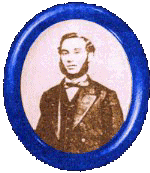By protecting them, the State Knights demonstrated their political independence. This was the beginning of the second phase in the development of the Country Jews, what contained the consolidation of the relationship between the Jews and their protectors. The main part of the Jews living at the countryside were active as intermediate traders, what played an important role for the rural population as they supplied them with goods from urban production and also sold the rural goods into the cities, so the jewish trade was of great importance for the economic development. A great trade rivalry between Jewish traders existed, because there were so many of them and also were they forced to pay a great amount of taxes and fees. So most of the Jews lived more and more near the minimum subsistence level.
The Bavarian Kingdom received about 40.000 new Jewish citizens, as in 1806 the Swabian and Franconian territories were united with this state. So the state had to do something for the improvement of the living conditions of the Jews. A law was enacted that "[...] abolished the indepence of the jews in their corporative association and in their rabbinical jurisdiction and tried to force their incorporation into the state by the use of educational measures." (Siehe der Stein..., S.191f). So the Jews now had to do jobs like farming and handicraft. It was around 1830 that the last phase of the Country Jewdom began. From then until 1855 about 11.000 Jews emigrated from Bavaria especially to North America. With these Jews was, as described earlier, Levi Strauß and his family.



